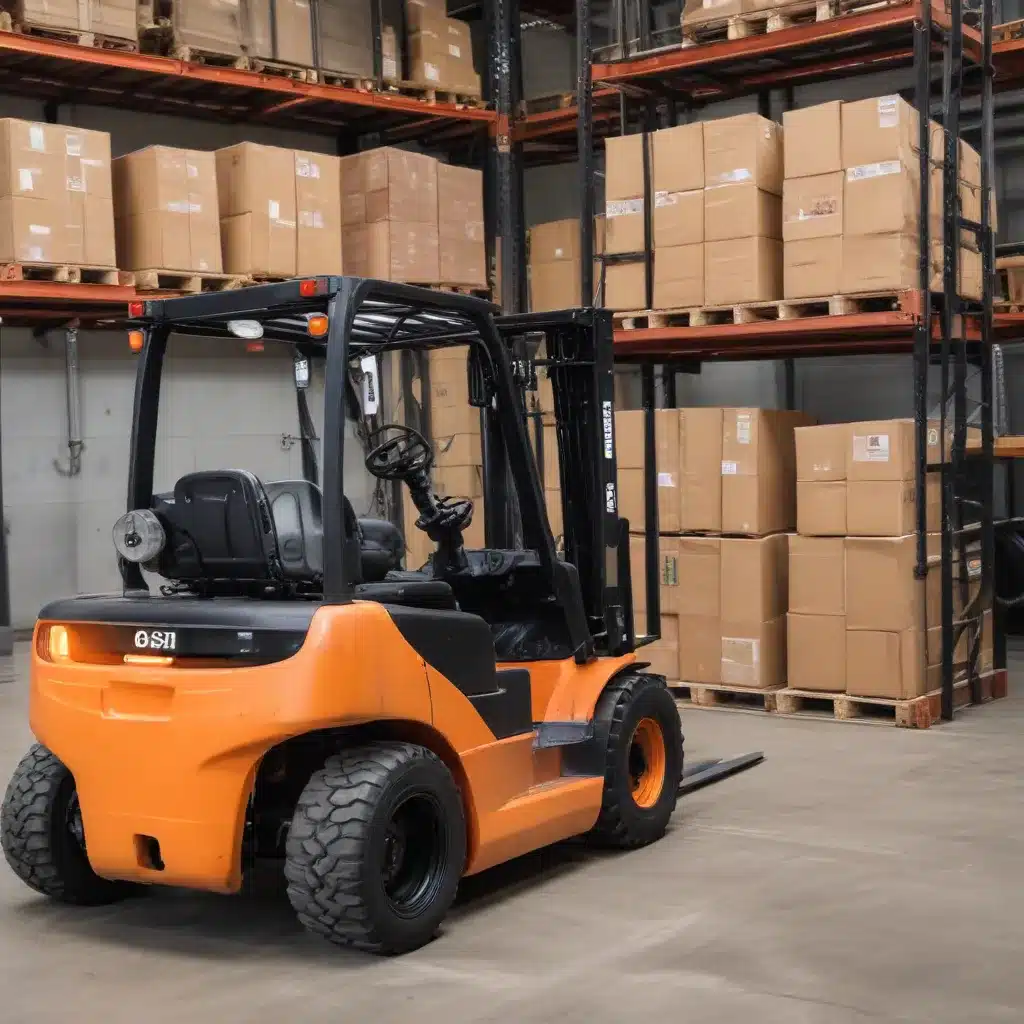
The Importance of Comprehensive Forklift Operator Training
In today’s fast-paced warehouse and logistics industry, maintaining a productive and safe working environment is crucial. One of the key factors in achieving this is ensuring that your forklift operators are well-trained and equipped with the necessary skills to operate the equipment safely and efficiently. A comprehensive forklift operator training program is essential for any company that relies on forklifts to move and handle materials.
There are several compelling reasons why implementing a forklift operator training program is important:
-
Safety: Properly trained operators are better equipped to identify and mitigate hazards, reducing the risk of accidents and injuries. This not only protects your employees but also safeguards your equipment and inventory.
-
Compliance: Forklift operator training is a regulatory requirement in many jurisdictions, such as the Occupational Safety and Health Administration (OSHA) in the United States. Compliance with these regulations helps avoid costly fines and legal issues.
-
Productivity: Well-trained operators can handle materials more efficiently, leading to increased productivity and throughput in your warehouse or distribution center.
-
Cost Savings: Proper training can extend the lifespan of your forklift fleet by reducing damage and wear and tear, ultimately resulting in lower maintenance and replacement costs.
-
Reputation: A commitment to safety and training demonstrates your company’s dedication to its employees and customers, enhancing your reputation in the industry.
Key Elements of an Effective Forklift Operator Training Program
To ensure the success of your forklift operator training program, it’s essential to include the following key elements:
Comprehensive Classroom Instruction
The classroom portion of the training should cover a wide range of topics, including:
- Forklift types, capabilities, and limitations
- Pre-operational inspection procedures
- Safe operating techniques, such as maneuvering, load handling, and braking
- Workplace hazard identification and mitigation
- Applicable safety regulations and industry best practices
Hands-on Practical Training
In addition to the classroom sessions, hands-on training is crucial for developing the necessary skills and muscle memory for safe forklift operation. This practical training should include:
- Operating the forklift in a controlled, simulated environment
- Practicing load handling, stacking, and maneuvering
- Experiencing emergency procedures, such as sudden stops and obstacle avoidance
Ongoing Evaluation and Certification
Forklift operator training should not be a one-time event. Implement a system for regularly evaluating operator performance and providing refresher training as needed. This helps ensure that operators maintain their skills and remain up-to-date with any changes in regulations or best practices.
Comprehensive Documentation
Maintain detailed records of all forklift operator training, including:
- Dates of training and certification
- Operator names and identification numbers
- Training content and evaluation results
- Refresher training schedules
This documentation serves as proof of compliance and can be invaluable in the event of an accident or regulatory inspection.
Best Practices for Implementing a Forklift Operator Training Program
To ensure the successful implementation of a forklift operator training program, consider the following best practices:
-
Utilize Qualified Instructors: Engage experienced, certified instructors who have a deep understanding of forklift operations and safety protocols.
-
Tailor the Training to Your Specific Needs: Customize the training content and delivery methods to address the unique requirements of your warehouse or facility, including the types of forklifts used and the specific operational challenges.
-
Incorporate Ongoing Training and Refreshers: Regularly schedule refresher courses to keep operators up-to-date and reinforce safe practices.
-
Integrate Forklift Fleet Management Solutions: Leverage advanced fleet management technologies, such as telematics and operator monitoring systems, to support your training program and enhance overall safety and efficiency.
-
Foster a Culture of Safety: Encourage a safety-first mindset throughout your organization, from the leadership team to the frontline workers. Regularly communicate the importance of forklift safety and recognize operators who demonstrate exemplary safe practices.
By implementing a comprehensive forklift operator training program and following these best practices, you can create a safer, more productive work environment, ensure compliance with regulations, and drive long-term cost savings for your organization.
The Role of Technology in Forklift Fleet Operator Training
Advancements in technology have revolutionized the way forklift operator training is delivered and supported. Innovative solutions, such as those offered by Forklift Reviews, can significantly enhance the effectiveness and impact of your training program.
One example is the integration of telematics and fleet management systems. These technologies provide real-time data and insights into the performance and usage of your forklift fleet, allowing you to identify training needs, monitor operator behavior, and implement targeted coaching and corrective actions.
Furthermore, the availability of virtual reality (VR) and augmented reality (AR) simulations can greatly enhance the hands-on training experience. These immersive technologies allow operators to practice forklift operation and emergency procedures in a safe, controlled environment, without the risk of damaging equipment or causing injuries.
By embracing technological solutions, you can create a more engaging, data-driven, and effective forklift operator training program, ultimately leading to a safer and more productive warehouse or logistics operation.
Conclusion
Implementing a comprehensive forklift operator training program is a crucial investment in the safety and efficiency of your warehouse or distribution center. By ensuring that your operators are thoroughly trained, certified, and equipped with the necessary skills, you can minimize the risk of accidents, enhance productivity, and maintain compliance with industry regulations.
Remember, forklift safety is not just a box to check, but a vital component of your overall operational strategy. By prioritizing forklift operator training and leveraging the latest technological solutions, you can create a safer, more efficient, and more successful business.
For more information on forklift fleet management, safety best practices, and innovative training solutions, visit Forklift Reviews. Our team of industry experts is here to help you optimize your operations and prioritize the well-being of your employees.

